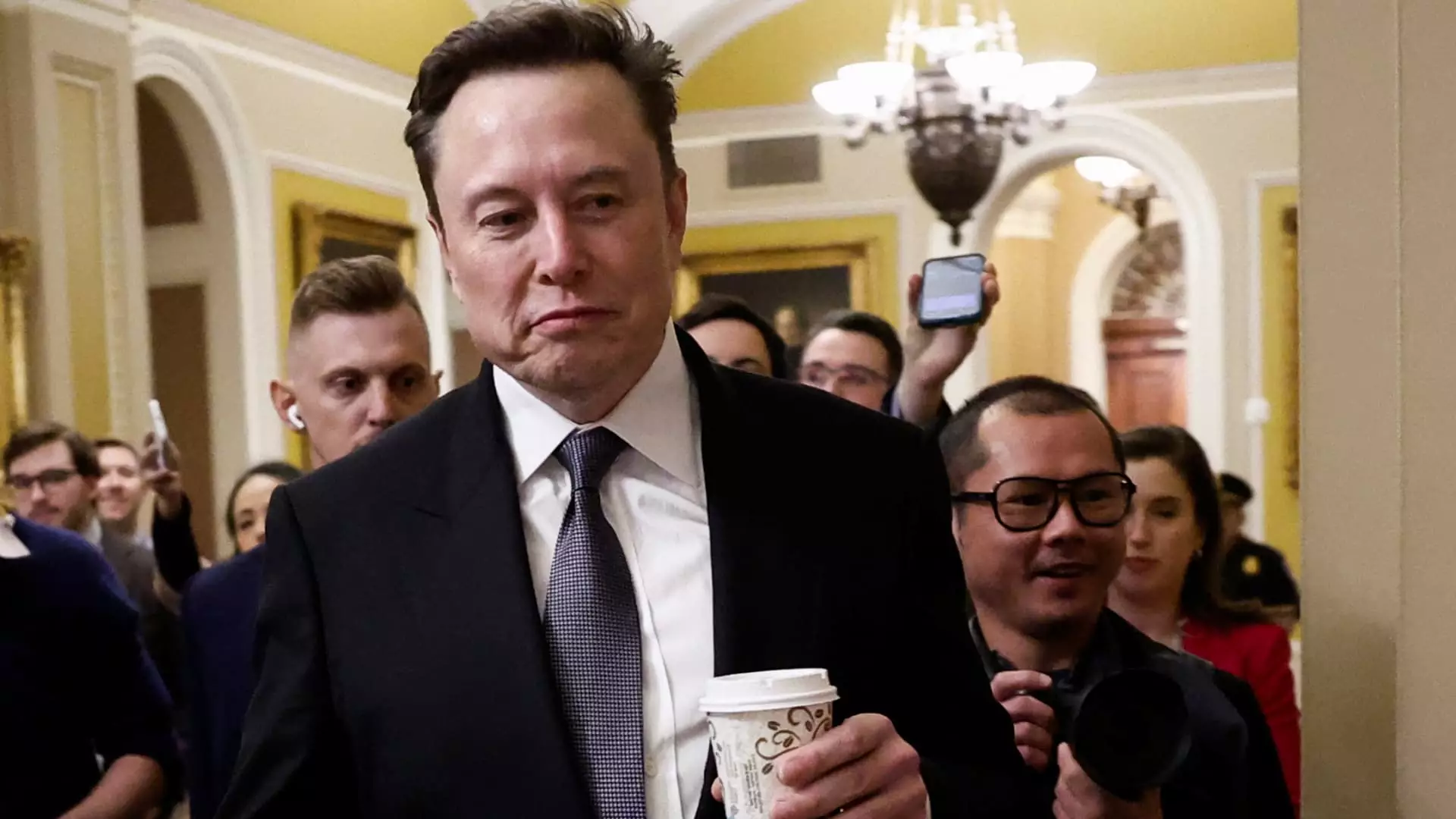The intricate relationship between business magnates and government policies has never been more evident than in the recent legislative developments concerning funding measures in Congress. The clash between House Democrats Jim McGovern and Rosa DeLauro and their Republican counterparts has illuminated the broader issues underpinning U.S. investments in China and the influence powerful figures like Elon Musk exert on these dynamics. The abandonment of a pivotal bipartisan funding bill—one that sought to regulate investments in the Chinese market—highlights a concerning trend: the melding of corporate ambitions with national security concerns.
As Congress scrambled to avert an impending government shutdown through a stopgap funding measure, previously considered regulations that aimed at safeguarding American technological advancements fell by the wayside. Representatives McGovern and DeLauro argue that this defeat was orchestrated by their Republican colleagues under the influence of Musk, particularly citing his personal interests in the Chinese market. The original provisions of the bill were seen as crucial for maintaining America’s technological edge, particularly in critical fields such as artificial intelligence and quantum computing. Instead of voting for progress, lawmakers allegedly chose to align with Musk, the CEO of Tesla and SpaceX, whose corporate interests may overshadow national priorities.
Elon Musk’s status as a visionary entrepreneur comes with its own set of complications, especially when his businesses cross international borders. The fact that Tesla operates without a local joint venture in China enables Musk to tap into a vast market unfettered by the typical constraints faced by foreign companies. Yet, this freedom brings with it the burden of accountability; critics posit that Musk’s flourishing operations in China necessitate a careful balancing act between business interests and adherence to U.S. security protocols. McGovern’s pointed remarks reflect deep concern over Musk’s reliance on favorable relations with the Chinese Communist Party, insinuating that the CEO’s ambitions may endanger American jobs and technological advancements.
The controversy not only underscores the complexity of U.S.-China relations but also raises critical questions about the true cost of unchecked corporate influence in governance. Musk’s desire to expand in China, including plans for an AI data center, could be seen as a potential security risk, thus placing economic ambitions at odds with national interests. This conflation of agendas is dangerous; as Tesla aims to solidify its hold in China, the potential implications for American workforce stability and innovation could become dire.
The political landscape is further complicated by the personal associations and influence that figures like Musk wield over politicians. The former President Trump’s alignment with Musk, amplified by campaign contributions running into hundreds of millions, served to cloud transparency during discussions around national legislation. Musk’s disparaging remarks aimed at DeLauro illustrate a troubling trend where business tycoons not only exert financial influence but also engage in direct confrontations with legislative leaders. This kind of public spat reflects a diminishing respect for political discourse, hinting at a future where business moguls might more frequently dictate policy rather than merely responding to it.
As the U.S. navigates the turbulent waters of international trade, technology regulation, and corporate governance, the implications of Musk’s influence extend far beyond mere legislative outcomes. The interplay between national security and corporate ambition must be examined with a critical lens. The failure to pass key provisions aimed at regulating U.S. investments in China is indicative of a broader cultural shift in how business interests shape policy. With the stakes higher than ever, there exists an urgent need for transparency, accountability, and a reevaluation of priorities that distinguishes business interests from national security imperatives. The balance of power between these realms remains delicate and essential for the integrity of both economic and political landscapes.


Leave a Reply